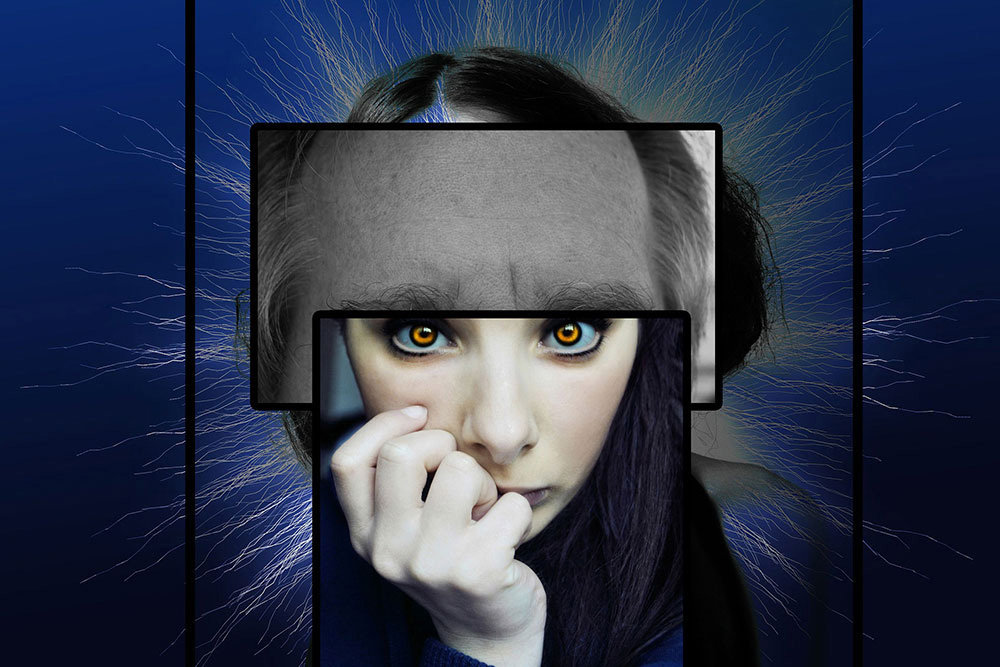Myths About Schizophrenia
Published on August 29th, 2018
Updated on January 4th, 2024

Schizophrenia is a complicated disorder that is often misunderstood by the general public. It is a disorder that causes many unique and sometimes scary symptoms that are often misunderstood by others. These symptoms can be alarming to affected people, their families and their peers. When left untreated, schizophrenia can have severe consequences for the affected person and the people around them.
It is important to be aware of the myths of schizophrenia. In order to understand the myths of schizophrenia, it can be helpful to understand the symptoms a person with the condition may experience.
Symptoms a person with schizophrenia may experience include:
Sponsored by

Choose a therapist to work with and start healing with 20% off from BetterHelp.
Click Here- Hallucinations
- Dysfunctional ways of thinking
- Restlessness or unusual mannerisms
- Flat affect
- Limited communication
- Low interest in activities or interacting with others
- Distractibility
- Delusions
- Poor information processing skills
- Poor decision making skills
- Learning and memory impairments
- Paranoia
- Impulsivity
- Impaired motor function
It can be easy to draw conclusions about people who suffer from schizophrenia. People often believe negative things about schizophrenia, but many of the things you hear about it are myths. The myths of schizophrenia come from a number of sources, including:
- Misrepresentation of research
- Relying on outdated literature
- Medial portrayal of the condition
- Social stereotypes and stigmas of people with the condition
Common myths about schizophrenia include:
1. People with schizophrenia have multiple personalities.
Schizophrenia is often mistaken for another condition, called dissociative identity disorder (DID). DID is a disorder in which a person’s brain develops different personalities in order to cope with stress. For people with DID, their individual selves develop different or altered personalities. Each personality may take control of the affected person at different points in time.
Schizophrenia and DID are two different diagnoses. The myth stems from the symptoms: hallucinations, psychosis and mood swings. Severe cases of schizophrenia can cause affected people to act erratically, so it can seem like they are taking on different personalities, but this is not necessarily the case.
2. People with schizophrenia cannot lead normal lives.
Schizophrenia does cause scary and difficult symptoms. The symptoms are sometimes severe, but with treatment, an affected person can live a normal life.
Treatment often involves education and medication to keep the symptoms under control. It also includes supportive therapy and sometimes group counseling. With commitment to treatment, a person with schizophrenia can learn how to cope and live a functional life, just like anyone else.
3. People with schizophrenia are crazy.
Schizophrenia is a mental illness that can cause affected people to appear to be odd to others, or not act like themselves. The symptoms of schizophrenia are unusual and can make people around the affected person feel uncomfortable or unsafe.
This leads to the belief that schizophrenia makes people lose their minds. While schizophrenia does cause serious and erratic behavior, and periods of psychosis, it is important to keep in mind that being mentally ill does not equate to being crazy. People with schizophrenia are suffering from mental illness.
Schizophrenia causes people to act erratically. With proper treatment and medication, a person can remain stabilized. Untreated patients may lose touch with reality and act erratically and can sometimes become a danger to themselves or others, but this is not the case for all who suffer from schizophrenia.
4. Having schizophrenia means you are ‘psychotic’.
A person with schizophrenia is not psychotic. Psychosis is a symptom of schizophrenia, but is not present in all cases.
Psychosis is a condition in which a person loses touch with reality. It is typically temporary, only lasting a few days. A person with schizophrenia may suffer from a psychotic episode. With medical intervention, they may be able to re-stabilize.
Not all people with schizophrenia will experience a psychotic episode, but the chances of experiencing psychosis depends on early intervention and commitment to consistent treatment.
5. You can’t develop schizophrenia if it does not run in your family.
A person can develop schizophrenia if it does not run in their family. Schizophrenia does have a strong genetic component. This means people with a genetic predisposition for schizophrenia are at higher risk.
Having a genetic predisposition to the condition does not mean that you must be genetically predisposed to develop schizophrenia.
The following factors also contribute to the onset of schizophrenia:
History of trauma or abuse.
A history of trauma or abuse puts people at risk for developing schizophrenia.
Traumatic birth.
A traumatic birth can cause complications that result in schizophrenia. Some prenatal conditions also put the baby at higher risk.
Environmental influences.
Growing up in a chaotic environment may cause a person to develop schizophrenia. Children who suffer from emotional and behavioral issues are also at higher risk.
Quality of upbringing.
Those who had a non-nurturing, cold, or unsafe upbringing may develop schizophrenia. Children who have parents with substance use issues or households with domestic violence are at higher risk.
Sponsored by

Find an affordable therapist online with 20% off from BetterHelp.
Click Here






Leave A Reply